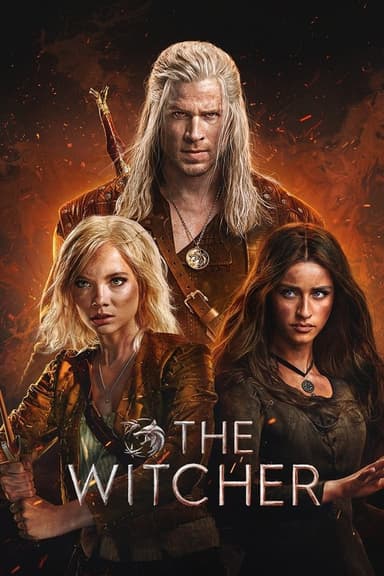
The Witcher
2002 • Action & Adventure, Drama, Sci-Fi & Fantasy • TV-MA
"Later it was said that the man came from the north from the Powroznicza gate. He walked on foot, and led his horse, which was laden, by the bridle. It was late afternoon and the stalls of the ropemakers and saddlers were already closed, and the street was empty. It was warm, and the man was wearing a black cloak thrown over his shoulders. He was drawing attention." - So begins the short story "The Witcher" by Andrzej Sapkowski, which gave rise to a seven-volume series.
Why you should read the novels
While the 2002 TV series The Witcher introduces viewers to Geralt of Rivia’s world, the source novels by Andrzej Sapkowski offer a richer, more nuanced experience. The books are intricately woven tales filled with philosophical questions, detailed world-building, and complex, evolving characters that adaptations can never fully capture.
Sapkowski’s storytelling immerses readers in Slavic folklore, moral ambiguity, and thought-provoking challenges, providing context and motivation behind character actions that often get lost in translation to the screen. The lyrical prose and depth of the novels reward patient reading and allow you to form your own interpretations of Geralt, Ciri, and Yennefer.
Delving into the books also reveals subplots, characters, and cultural details omitted or altered in TV versions. Reading Sapkowski’s work as originally intended rewards you with a more complete, deeply engaging fantasy epic that far surpasses episodic adaptations.
Adaptation differences
The 2002 TV series takes considerable liberties with both the timeline and the structure of Sapkowski’s books. The show attempts to blend multiple short stories from "The Last Wish" and "Sword of Destiny" into a linear, episodic framework, which results in significant condensation and reordering of events. This often strips stories of their original thematic impact and pacing.
Major character arcs and motivations also differ. Geralt’s personality in the novels is defined by his subtle wit, introspection, and complex code of ethics, whereas the TV adaptation simplifies his traits and downplays his philosophical nature. Key characters like Yennefer and Ciri lose much of their depth and agency, often becoming supporting figures rather than driving forces as they are in the source material.
Crucial themes surrounding destiny, free will, and the consequences of choice are often underexplored in the television adaptation. Where the books grapple with ambiguity, the series frequently opts for straightforward resolutions, sacrificing nuance and the moral complexity that are hallmarks of Sapkowski’s writing.
Additionally, the TV series omits or alters minor and supporting characters, subplots, and cultural intricacies, often due to budgetary or storytelling constraints. This results in a world that feels less vibrant and authentic than the one so vividly depicted in the novels, and diminishes the immersive experience that readers of Sapkowski’s saga enjoy.
The Witcher inspired from
Baptism of Fire
by Andrzej Sapkowski
Blood of Elves
by Andrzej Sapkowski
The Lady of the Lake
by Andrzej Sapkowski
The Tower of the Swallow
by Andrzej Sapkowski
Time of Contempt
by Andrzej Sapkowski
Sword of Destiny
by Andrzej Sapkowski
The Last Wish
by Andrzej Sapkowski


